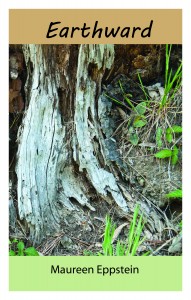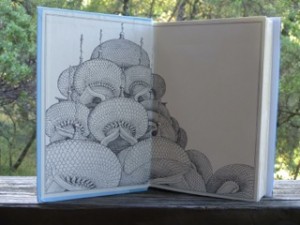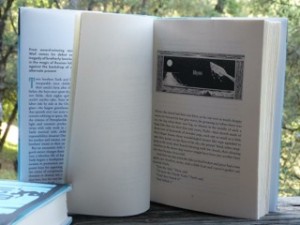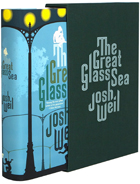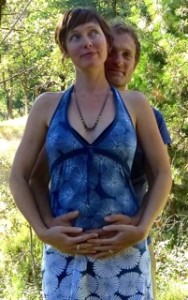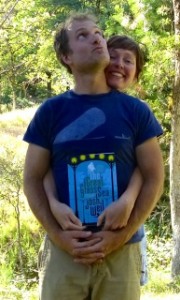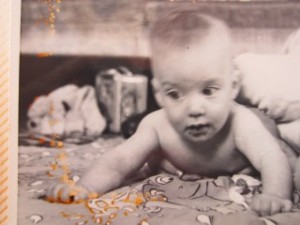Archive for July, 2014
My new poetry collection
I am excited to announce that Finishing Line Press is now taking pre-publication orders for my new poetry collection, Earthward. It can be ordered now and will be printed and shipped in October. You can order online from the publisher at https://finishinglinepress.com/product_info.php?cPath=4&products_id=2129
The cost is $14 plus $2.99 shipping. The publisher bases the size of the print run on how many pre-publication orders they receive, so I hope you’ll consider adding to my tally. Please feel free to suggest this book to others you think might be interested too.
The poems in Earthward explore the cyclical patterns of life. Here is a sample poem:
Osprey With Fish
Undercarriage of leg and talon
joins two bodies similar
in sleekness,
twinned
as life and death conjoin
in a continuum
of nourishment.
Huge wings slow over forest,
a fading cry.
I’ve been honored to receive reviews from poets I admire:
With a naturalist’s eye for the precise and sensuous image and a writer’s care for the precise and sensuous word, Maureen Eppstein plants our human griefs into this book, roots them, and invites them to quicken into new life.
—Jane Hirshfield, author of Come, Thief
What captivates me about Earthward is the way Maureen Eppstein transforms ordinary landscapes into miraculous acts of affirmation. Turning compost becomes an opportunity to ponder death and resurrection, braiding garlic reminds us of the “pleasure taken in braiding the hair of the beloved”. This is poetry of quiet lyrical depth, that reconnects us with land and spirit. Earthward invites us to stand deeply rooted in each moment, “in awe and wild surmise at all this human brain can not yet comprehend.”
—Devreaux Baker, author of Red Willow People
In Earthward, Maureen Eppstein unites what would break us with what will bring us back to life. The wild ones, like us, must eat, and so kill. Lost sisters are mourned by proxy. Some things we love are transplanted and transplanted again, surviving and sometimes thriving. The tenacity Eppstein describes is the foundation of our lives. There are those who say that to write about the extraordinary one must look lovingly at the ordinary. Eppstein knows where, and how, to look.
—Camille T. Dungy, author of Smith Blue
Here’s a brief bio:
Maureen Eppstein is the author of two previous poetry collection: Rogue Wave at Glass Beach (2009) and Quickening (2007), both published by March Street Press. Quickening was also first runner-up in the 2007 Finishing Line Press/ New Women’s Voices competition. She has been a finalist in several other book contests. Her poetry has appeared in numerous journals and anthologies, including Poecology, Calyx, Basalt, Written River, Sand Hill Review, and Aesthetica 2014, and has been nominated for a Pushcart Prize. Crossing the boundary between the arts and the sciences, her poems have been included in a textbook on computer graphics and geometric modeling and used in a university-level geology course.
Josh Weil novel launched
I’m so proud of young novelist Josh Weil, whom Mendocino Coast Writers Conference picked as a rising star and invited to be on faculty at our 2013 conference. Here’s news from Josh worth sharing:
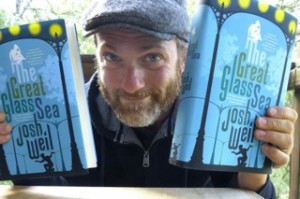 literary prize, the most incredible first-edition program I’ve ever seen, my complete book tour schedule—but there are two reasons, above all else, that this issue of The Gazette is a pretty special edition.
literary prize, the most incredible first-edition program I’ve ever seen, my complete book tour schedule—but there are two reasons, above all else, that this issue of The Gazette is a pretty special edition.“[An] impressive debut…As broad as its themes are—touching on political, philosophical and historical divisions—Weil’s first novel is rooted in family and fine storytelling; it’s an engaging, highly satisfying tale blessed by sensitivity and a gifted imagination.”
“A tale of longing and sadness, threaded by Russian folklore and heavy with the weight of love…resplendent and incandescent.”
“A well-timed dystopian tale, the novel beautifully details both the politics of [an] hypothetical Russia—“oligarchs bred beneath the clamp of communism let loose upon loot-fueled dreams”—and its impact on one small family.”
And the first newspaper review (out even before the official publication date!) was even better:
“If complex literary novels really are done for, Josh Weil must’ve missed the text message. His formidable “The Great Glass Sea” knits together strands of traditional Slavic folklore and futuristic speculative fiction to create a passionate reflection on technology and personal happiness. Spanning almost 500 pages, the novel poses mind-bending questions about politics, ecology and the ambivalent closeness of siblings…Weil pulls off dazzling strokes of storytelling…His distinctive voice obliges readers to slow down and swish certain passages around before swallowing…While keeping the sophisticated themes afloat (science vs. nature, the state vs. the individual, family obligation vs. ambition), almost every page flows with respect for the flawed, endearing heroes, Dima and Yarik. Pushing the envelope on literary artistry even further, each chapter begins with a pen-and-ink illustration by the author….A genre-bending epic steeped in archetypal stories, “The Great Glass Sea,” rises above the usual Cain-and-Abel formula by way of sensitive, resourceful craftsmanship.”
And here’s me, now, signing off and saying thank you, again, for continuing to care about what that tyke’s grown up to love, what the writer he became now does, these words on a page that I am so lucky to be able to share with you.
